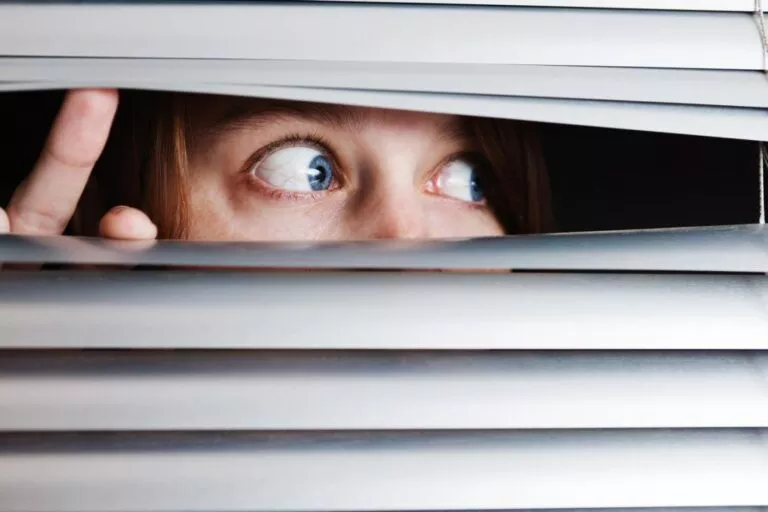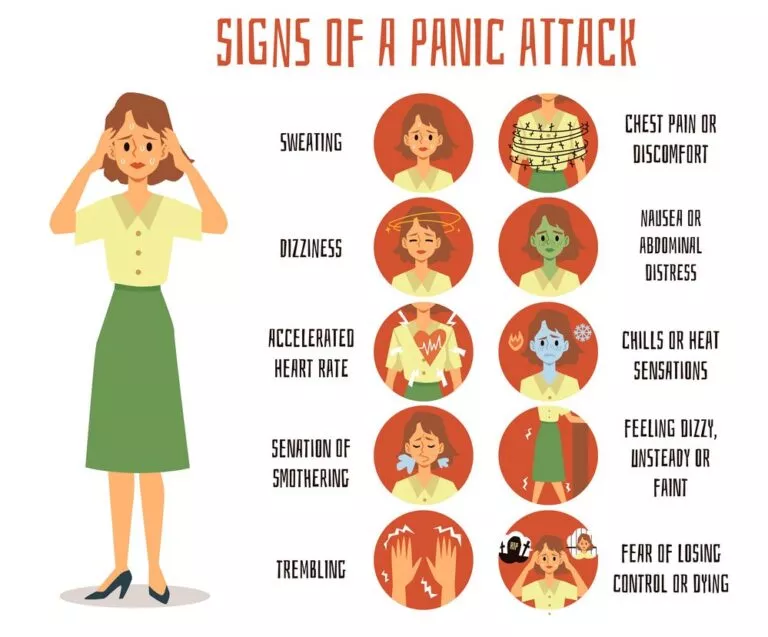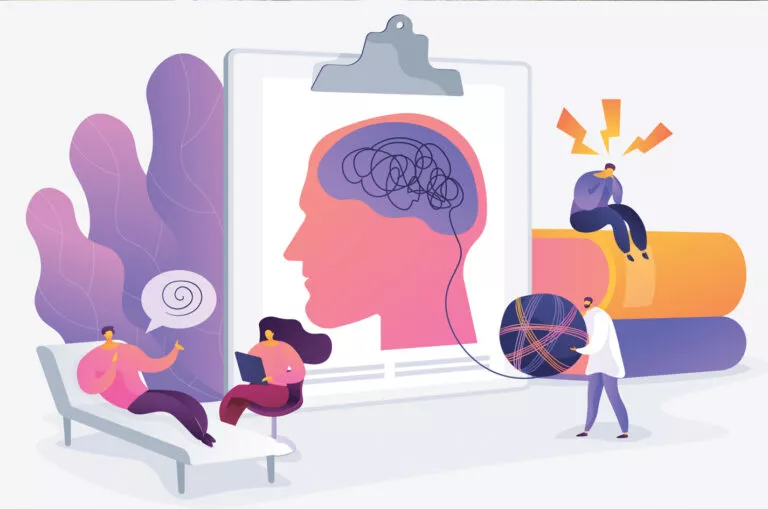A lot of people love socializing. But for some people, being surrounded by unknown people can be uncomfortable and can even lead to anxiety. This is a rare type of anxiety disorder known as Agoraphobia. These people tend to fear and avoid places or situations that might cause them to panic and induce a feeling of being trapped, helpless or embarrassed. Anxiety intensifies as people are unable to escape from these new places and unfamiliar situations and they may eventually resist leaving home.

Agoraphobic people often have a hard time feeling safe in any public place, specifically where crowds gather. They may feel the need for a companion, such as a relative or friend, to go with them in public places. The fear can be overpowering to such an extent that they might feel unfit to leave their home.
Nearly 1% to 2% of adults in the United States have been determined to have agoraphobia. Commonly 2% of teenagers experience symptoms of agoraphobia. Agoraphobia is more common among ladies and mostly begins before age 35.
WHAT LEADS TO AGORAPHOBIA?
The specific reason for agoraphobia isn’t known. But, there are a few factors that are known to increase the risk of developing agoraphobia. These include having:
- Depression
- Other phobias, such as claustrophobia and social phobia
- Anxiety disorders, such as generalized anxiety disorder or obsessive-compulsive disorder
- History of physical or sexual abuse
- Substance abuse problem
- Family history of agoraphobia
Agoraphobia is additionally more normal in ladies than in men. It begins mostly in youthful adulthood, with 20 years being the normal period of beginning. In any case, manifestations of the condition can arise at whatever stage in life.
WHAT IS THE DANGER ASSOCIATED WITH AGORAPHOBIA?
There are certain risk factors associated with agoraphobia, such as:
- Panic attacks or other phobias.
- Encountering stressful life events.
- Nervous or anxious nature.
- Reacting to panic attacks with excess fear and worry.
- Having a relative with agoraphobia.
WHAT DO YOU FEEL WHEN YOU HAVE AGORAPHOBIA?
Agoraphobia may run in family or may be induced due to existing panic disorder which causes short, intense attacks of fear for no specific reason. Anxiety or panic attacks is been experienced by almost everyone based on the situation but when they cannot be controlled may lead to serious health issues. Symptoms of Agoraphobia are similar to panic attacks such as:

- Chest pain or rapid heart rate,
- Fear or a shaky feeling,
- Hyperventilation or trouble breathing,
- Lightheadedness or dizziness,
- Sudden chills or flushing (red, hot face),
- Excessive sweating (hyperhidrosis),
- Upset stomach,
- Choking,
- Nausea, and
- Tingling sensation.
In crowded places like public transportation, such as a bus, plane, or train people with agoraphobia may feel they might not survive a panic attack, they feel they look bad in front of others or that they’ll stare at people around and they need to be with someone they trust when they go anywhere.
Doctors identify people with agoraphobia if they have signs such as:
- Scared of leaving their home for a long time.
- Scared of being alone in the social situation.
- Scared of losing control in a public place.
- Scared of being in places it is difficult to escape, such as a car or elevator.
- Confined or estranged from others.
- Disturbed or anxious.
If you have agoraphobia you may experience panic attacks whenever you encounter a stressful or uncomfortable situation. This might further enhance their fear of being in an uncomfortable situation.
HOW TO IDENTIFY AGORAPHOBIA?
It is difficult to diagnose agoraphobia as the symptoms are similar to a heart condition, breathing disorder, or stomach issues as some of the symptoms may be similar to these issues. All physical tests are conducted to rule out the possibility of these issues. Doctors often ask questions related to stress levels in crowded places or issues leaving home etc.
Your doctor would confirm you have agoraphobia when your symptoms need to meet certain criteria listed in the American Psychiatric Association’s Diagnostic and Statistical Manual of Mental Disorders (DSM). Some of these criteria’s include:
- Fear of using public transportation, like a train or bus.
- Fear of being in open spaces, like a store or parking lot.
- Fear of being in enclosed spaces, like an elevator or car.
- Fear of being in a crowd.
- Fear of being away from home alone.

HOW TO MANAGE & TREAT AGORAPHOBIA?
A combination of treatments is recommended to overcome this rare disorder: therapy, medication, and lifestyle changes.
- Therapy – Cognitive behavioral therapy is suggested by the healthcare provided to overcome the fear of places and people. Healthcare providers use relaxation and desensitization techniques, to fight a scary situation and manage the feelings. This helps in facing the situation as well as controlling the anxiety and emotions. Some other therapies include:
- Psychotherapy: This includes meeting with a specialist or other psychological wellness proficient consistently. This offers you the chance to discuss your apprehensions and any issues that might be adding to your feelings of dread.
- Exposure Therapy: This can also help you overcome your fears. The specialist would be gently and slowly exposed to the situations or places you fear. This will help your fears diminish over time.
- Medication – Doctors prescribe selective serotonin reuptake inhibitors (SSRIs) or serotonin-norepinephrine reuptake inhibitors (SNRIs) to treat depression and anxiety disorders. The doctor may prescribe medicines including citalopram (Celexa), escitalopram oxalate (Lexapro), fluoxetine (Prozac), sertraline (Zoloft), and venlafaxine (Effexor).

- Lifestyle changes – Regular exercise, a healthy diet as well as avoiding caffeine and alcohol helps in controlling the symptoms related to agoraphobia. Practicing meditation helps in controlling anxiety and panic attacks as well as keeps the mind calm. Some of the dietary and herbal supplements also help in calming and have anti-anxiety benefits.
Agoraphobia is easier to manage in the early stages with proper guidance from healthcare providers and support from family and friends.
OUTLOOK
Many people avoid talking about their fears and anxiety problems. Agoraphobia can cause you to feel apprehensive and segregated. But, with treatment, you can deal with the indications and have a full existence. Assuming agoraphobia or any nervousness issue influences how you carry on with your life, call your medical care supplier. An open, legit discussion can prompt the assist you with expecting to carry on with a full life.
If you or anyone you know is suffering from anxiety and depression, our expert providers at Specialty Care Clinics will take care of your health and help you recover.
Call us on (469) 545-9983 to book an appointment with our specialists.
